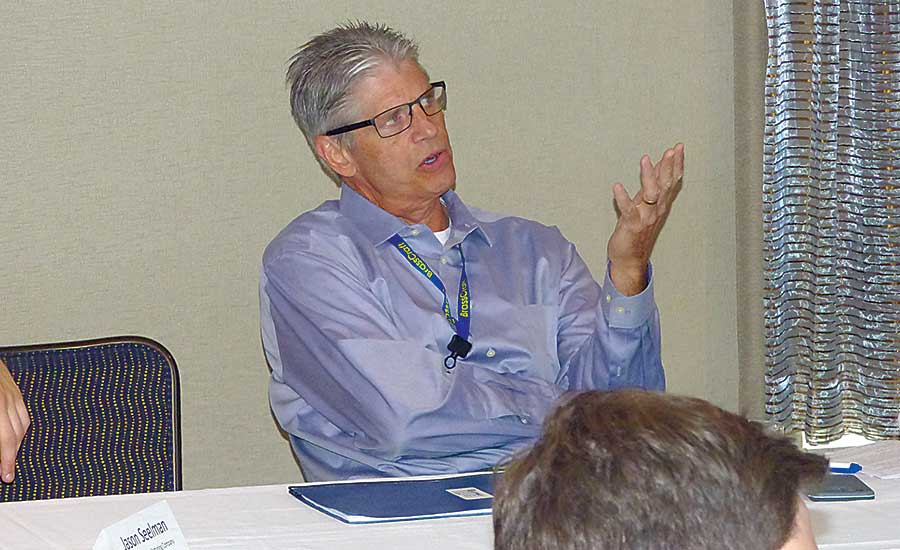Longtime industry consultant and speaker Mike Marks, managing partner at Indian River Consulting Group, directed a three-hour session at the recent North Central Wholesalers Association annual meeting in Dublin, Ohio, that zeroed in on the importance of pricing as well as competing for business in the digital space.
Marks started by giving a synopsis of current distribution pricing trends, labeling present state as “one size fits all.” “Most supplier and distributor pricing activity is transaction-based,” he said. Marks said most distributors let sales reps determine pricing without accountability and distributor column prices are mostly used inappropriately to give discounts to large customers, while rebates often are added to capture or retain large customers.
Marks said in order to change that companies should install what he calls a pricing czar who can enforce a rules-based pricing policy. “You will actually be saying no to some customers,” he said.
Having proper data also is key. Marks compared sales-rep pricing in a data-free environment against a policy- and strategy-driven system where pricing still is done by the customer-facing team. Marks said in the second scenario a company is hitting market price more than 80% of the time.
“The best approach is to work through the 20% that provides 80% of the impact,” he said. “This is hard to do and involves risk.”
Marks cautioned this type of change more than likely will be met with great resistance from the salesforce initially. “You don’t sell this to your salesforce, you impose it,” he said. “The salesforce will contest it and will conspire against it. People need to know you are serious. You must have rules. Your salesforce will be very unhappy until it gets used to it. The single largest price you will pay is the pain and cost of a major organizational change process that takes your company back from your own salesforce.”
Marks stated the caveat with having a structured data-driven price system in place is a company’s EBITDA margin will, in his estimation, have doubled.
In the second half of the session, Marks spoke about the industry’s digital transition. “The past proven best practice of reacting quickly to an opportunity or threat will not work because there is no tipping point and the failure rate is parabolic,” he said.
Marks said to take a close look at company growth compared to GDP growth. “When there is a disconnect between GDP growth and your growth, the gaps are revenue losses to unseen and nontraditional competitors.”
Marks’ advice on the digital end is simple. “Sell to customers the way they want to buy,” he said. “You should be extremely easy for someone to touch.”
Earlier in the day, NCWA’s Young Executives breakfast meeting featured a talk from Eastway Supply COO John Edwards who spoke about taking the lead in a family business as a nonfamily member. Edwards spoke about his ascension through the Eastway organization over the past 20 years after working at RIDGID and Ferguson.
“I cannot stress enough that being successful is made possible due to the great family culture at Eastway,” he said. “It’s the glue that holds us together and pulls us forward. We are accountable to each other and we all benefit from our successes. As I was emerging as an informal leader in the company, the family and the associates continued to put their trust in me.”
TOTO USA President, Americas, Operations Group Bill Strang closed the evening by talking about the importance of companies being relevant in the digital age.
“Seventy percent of people who look for info on products do it on their smartphone,” he said. “Make sure you are providing a delightful search. You must recognize you cannot be one thing. You have to be in multiple channels. Brick and mortar locations have such an opportunity to bring a value proposition to the customer. You are subject-matter experts.”
Next year’s NCWA conference heads back to Sawmill Creek Resort in Sandusky, Ohio, June 5-6.
This article was originally titled “More bang for the buck” in the July 2017 print edition of Supply House Times.







